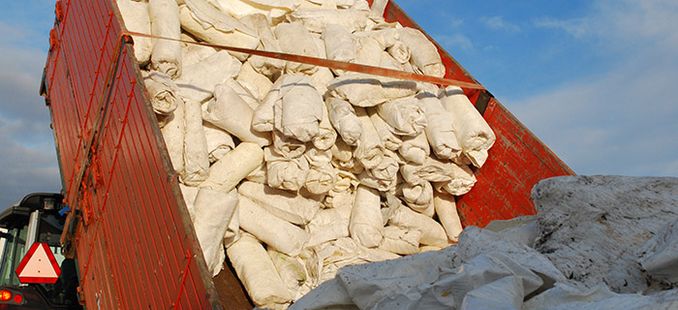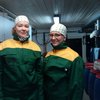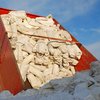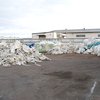
Promoting the development of plastic waste collection and recycling system
Every year, approximately 10 000–20 000 tons of agricultural plastic waste is created in Finland. Only a fraction ends up being recycled, which is why a project focusing on the plastic waste collection and utilization serves a purpose.
Agricultural and horticultural producers as well as horse management operators have already requested for more effective waste collection processes. However, in addition to collecting the plastic waste efficiently, it is also of extreme importance to find new opportunities for utilizing the waste.
Text: Johanna Stenroos-Vuorio
Photos: Solja Kirsiaho and Miia Kukko
Turku University of Applied Sciences (TUAS) participates in a project that aims at finding operational models for collecting and re-processing plastic waste.
The LiMuKe (Soiled Plastic Waste – Collecting and Recycling) project focuses on developing the collection and recycling business of agricultural plastic waste as well as non-packaging plastic waste from construction on sparsely populated areas. As part of the project, a campaign week for collection of agricultural plastic waste was arranged in late October.
"Collecting the plastic waste created in agriculture is extremely important. However, it is simultaneously essential to find and test new ways of utilizing agricultural plastic waste and its side stream in cooperation with the refining industries", explains Project Manager Juha Nurmio from TUAS.
Societally significant work attracts students
Right from the beginning, two Chemical and Materials Engineering students have participated in the project. Solja Kirsiaho and Miia Kukko, both of whom are now third year students, have noticed that in addition to the topic being a burning issue, project work offers them a great way of advancing their studies.
"We started working in the LiMuKe project in autumn 2016. The project working group provides a pleasant work environment, in which working feels quite natural", Kirsiaho and Kukko describe.
The responsibilities of the students in the project have changed during the past year. As the time has passed, their duties have expanded to cover a larger entity of responsibilities. Mastering the basics of materials engineering and having earlier experience in student projects made it easy for both of them to work in the LiMuKe project. As a whole, participating in the project has felt useful and beneficial. Networking with agricultural operators, plastic producers and waste management companies has also been rewarding.
"We have gained valuable experience in project work and contributed to a societally important theme", Kirsiaho and Kukko say.
When listing the benefits of the project, environmental issues are the first to spring to mind:
"We need to collect the plastics away from the terrain and utilize them. In addition, we must pay attention to the business opportunity created by collecting and re-processing plastic waste."
Kirsiaho and Kukko are happy with the opportunity to participate in cooperation with companies outside the sphere of school and to network with professionals from multiple fields. This is exactly the one significant benefit that every student should consider. Kirsiaho and Kukko remind:
– Being active and networking in different circles can surely facilitate job hunting in future. From the viewpoint of Chemical and Materials Engineering students, upgrading of plastic will become a noteworthy employer.
Campaign weeks and long-term goals
The plastic waste collection campaign arranged in October was targeted at operators in the fields of agriculture, horticulture and horse management. Currently, the project concentrates on the development of the collecting and recycling business of agricultural plastic waste on sparsely populated areas in Tavastia Proper and Southwest Finland.
"Our long-term goal is to create functional regional models for plastic waste collection. By so doing we can increase the efficiency of plastic waste collection and recycling", Juha Nurmio remarks.
More information on the project can be found on TUAS project website.
The project is implemented in cooperation with Brahea Centre of the University of Turku, The Sheet Metal Centre of Häme University of Applied Sciences (HAMK) and Turku University of Applied Sciences. The University of Turku coordinates the project and implements the collection experiments together with the Bioeconomy Research Unit at HAMK. The project is funded by the Programme for Sustainable Growth and Jobs 2014–2020, offered by the European Regional Development Fund (ERDF).



